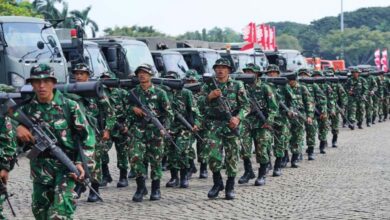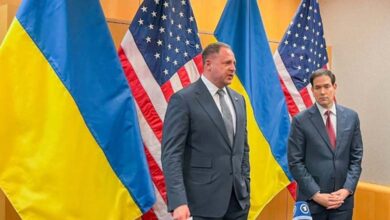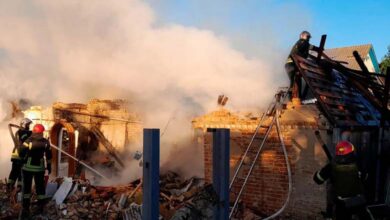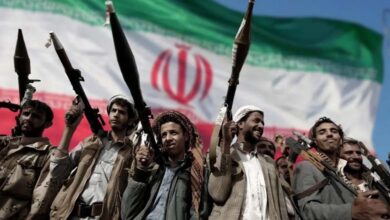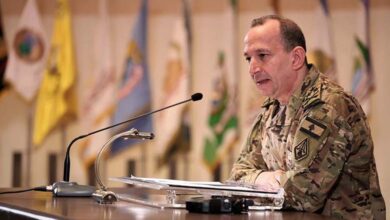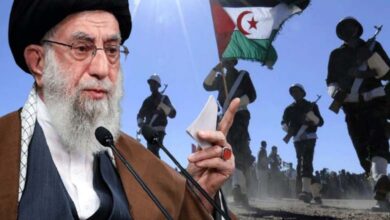Sudanese army undermines ceasefire and thwarts Griffiths’s humanitarian efforts
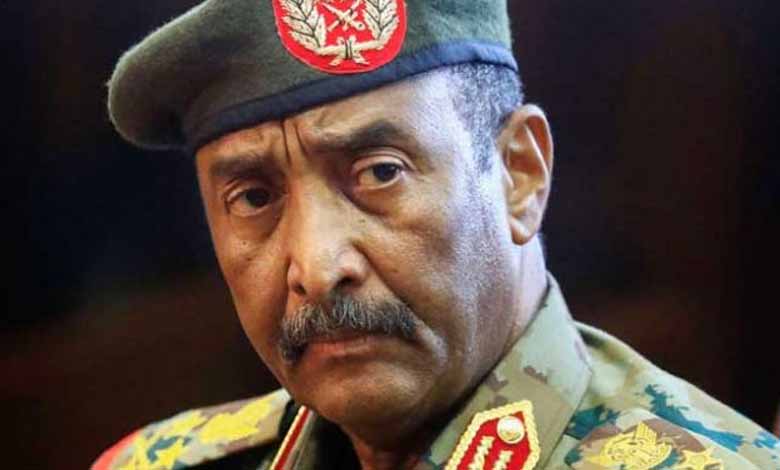
U.N. humanitarian chief Martin Griffiths is seeking to meet with Army Commander General Abdul Fattah al-Burhan and Rapid Support Forces commander Mohamed Hamdan Daglo, also known as Hemeti, to discuss humanitarian corridors after Berhane’s forces torpedoed a seven-day truce a day after it was declared in Juba, agreed by both sides.
The Sudanese army did not abide by the truce from its first day, as it launched intensive attacks with artillery and warplanes, which indicated its tendency to escalate, turning its back on all regional and international mediations in a development that worsened the humanitarian crisis and torpedoed the pacification efforts that the rapid support forces committed to.
Griffiths said he wanted to meet with both sides of the conflict in Sudan within two or three days to get public assurances that humanitarian aid would be given safe passage.
“He was informed from Jeddah, Saudi Arabia, that the meeting could take place in the Sudanese capital Khartoum or elsewhere, following a visit to Port Sudan aimed at planning a large-scale relief operation.”
The UN has warned that fighting between the army and the paramilitary Rapid Support Forces could cause a humanitarian disaster that could spill over to other countries.
Several UN staff members were killed in violence that erupted on April 15.
“Although some aid has been shipped to Port Sudan, aid agencies are seeking detailed guarantees of safe passage so they can distribute aid in Khartoum, Darfur and elsewhere.”
The UN official said he spoke by phone with Hemeti and Al-Burhan on Wednesday to tell them that certain aid corridors and air transport operations were needed.
“We are now very clear in our operational requirements about the obligations we need from them,” he said, adding that a road could pass through a civilian border southeast of Khartoum and another from Chad to Darfur.
About one-third of Sudan’s 46 million people were already in need of humanitarian assistance before the current conflict began.
“The fighting has displaced hundreds of thousands internally, mostly from Darfur in western Sudan, and more than 100,000 have fled across Sudan’s border.”
“In Khartoum, millions are still trying to survive an open war between an army using air strikes, heavy artillery, and rapid support forces deployed in residential neighborhoods.”
Most hospitals are out of service and many areas are left without electricity and water as food and fuel supplies dwindle. Repeated declarations of a truce have not succeeded in stopping the fighting.
Griffiths said he hopes to meet with al-Burhan and Hemeti, or “an authorized representative who can sign these specific documents that we will put before them” to ensure aid is delivered.
“It is important for me to meet face to face to discuss this because we need it to be a public and accountable moment,” he said.
“We are now in the process of consulting with them specifically on when and where,” he said.
When asked when such meetings would take place, he said he hoped they would be in “two or three days”.
Clashes between the two sides escalated in the Sudanese capital Khartoum at dawn on Thursday, while the forces accused elements of the army of intentionally making violations in an attempt to thwart all peace efforts, amid talk about the role of the remnants of the former regime and Muslim Brotherhood forces in causing tension.
Witnesses said fierce clashes were taking place around the presidential palace and the general headquarters in central Khartoum.
“Witnesses said the sound of heavy gunfire and explosions were concentrated in the center of Khartoum as plumes of smoke rose.”
“Military planes from the Sudanese army also overflew the towns of Omdurman, west of Khartoum, and Bahri, north of Khartoum, they said.”
The Rapid Support Forces condemned in a statement “the irresponsible actions of the leaders of the coup forces (the army) and the remnants of the former regime (supporters of the former regime), who violated the humanitarian truce announced and attacked our forces since dawn Thursday in several locations.”
“Our forces and residential neighborhoods were subjected to indiscriminate bombardment by artillery and aircraft in a cowardly manner that constitutes a flagrant violation of international norms and laws and international and humanitarian law,” she said.
“The multiplicity of decision centers within the coup group has negatively impacted the implementation of the humanitarian truce,” it said.
“The RSF has repeatedly warned against plans by the Muslim Brotherhood and the regime’s remnants, who still influence the army, to create tension, as the return of calm to Sudan and the commitment to political solutions and the framework agreement do not serve their interests.”


